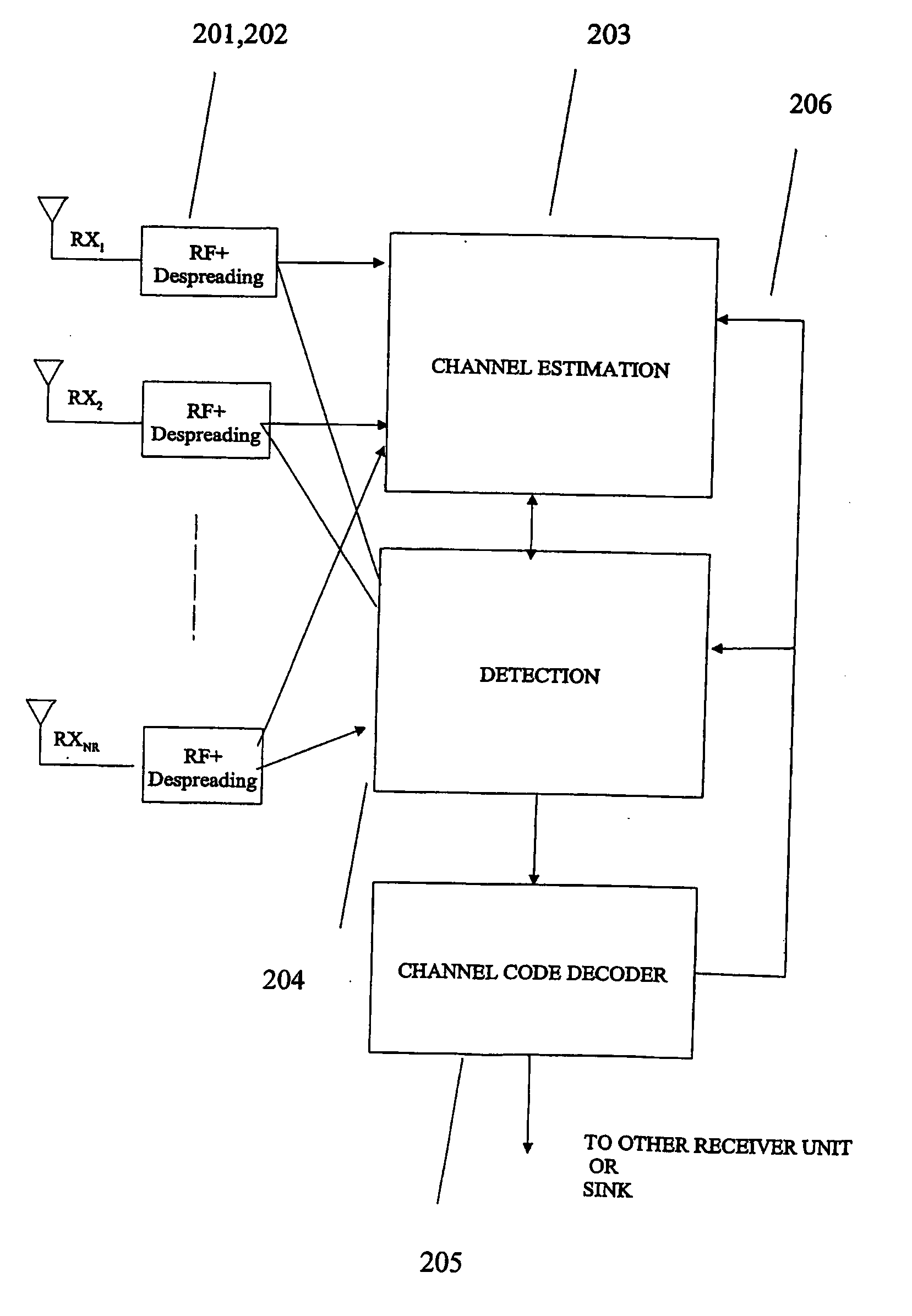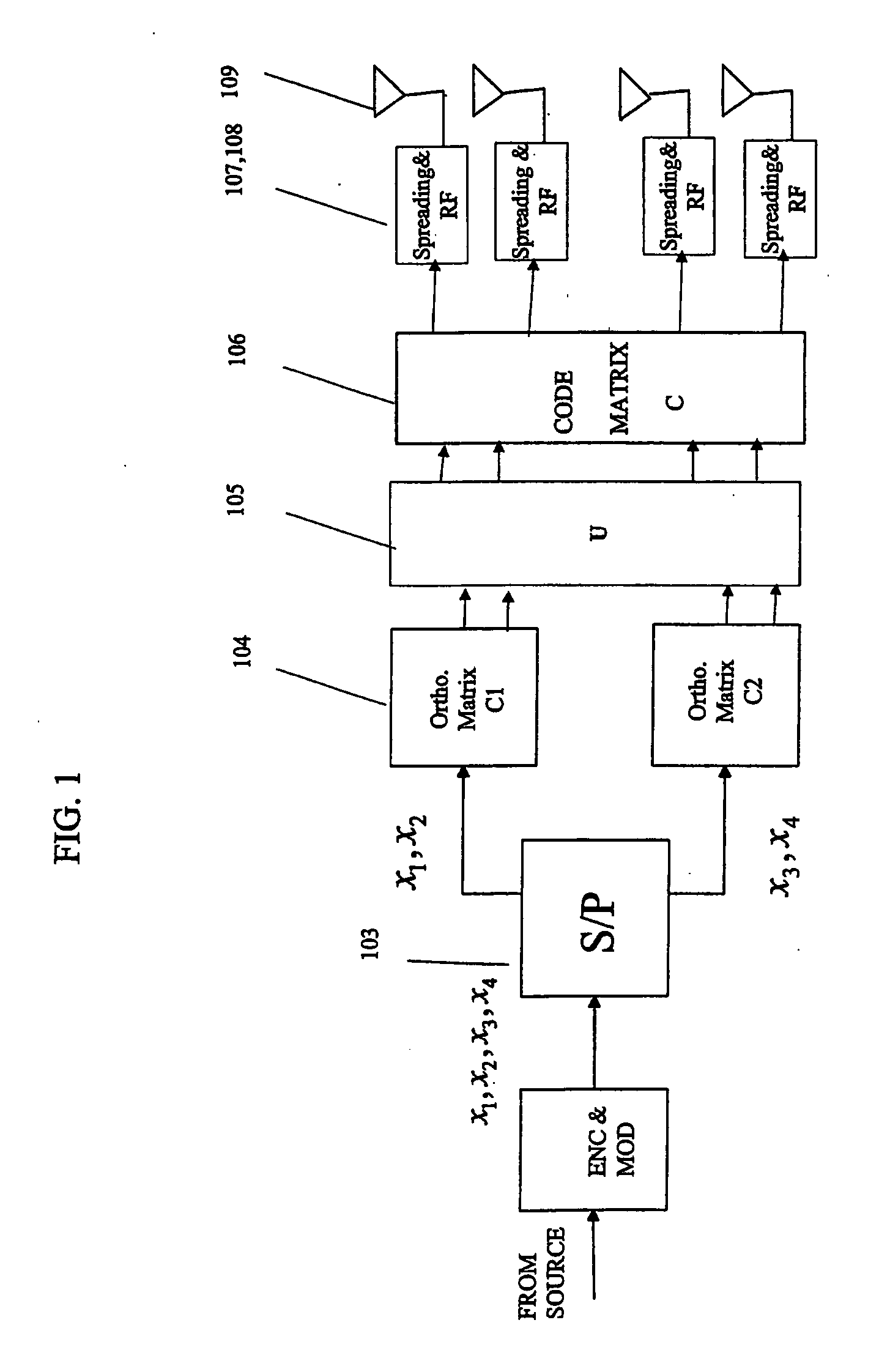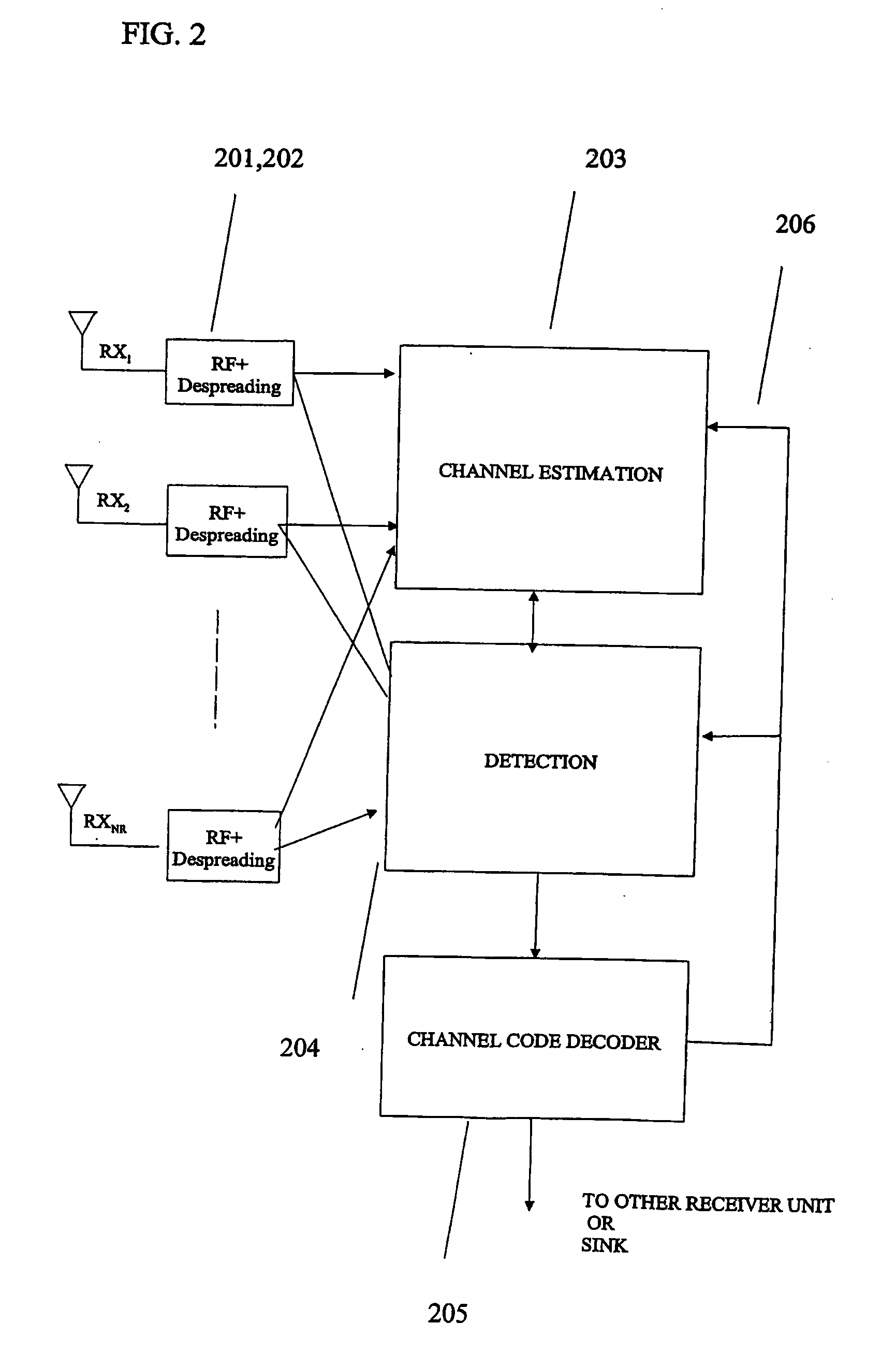High rate transmission diversity transmission and reception
a transmission and reception technology, applied in multiplex communication, orthogonal multiplex, baseband system details, etc., can solve the problems of reducing the achievable throughput and data rate or achievable quality-of-service, fading of signal transmission in wireless communication systems, and reducing the link capacity significantly
- Summary
- Abstract
- Description
- Claims
- Application Information
AI Technical Summary
Benefits of technology
Problems solved by technology
Method used
Image
Examples
Embodiment Construction
[0024] Reference is made to FIG. 1, which illustrates a high rate transmitter diversity system which includes a transmitting apparatus 101, such as a base station, and a receiver 102, such as a mobile phone. The transmitting apparatus 101 includes serial-to-parallel (S / P) module 103, a plurality of transmit diversity modulation modules for constructing orthogonal matrices 104, at least one transform module 105, code construction module 106, signaling / spreading modules 107 and a plurality of RF (Radio Frequency) modules that convert the signal to analog waveforms 108, and transmitting antennas 109. The receiver 102 includes possibly more than one receiving antennas.
[0025] The S / P module 103 converts the possibly channel coded (ENC) (e.g. Turbo coded or convolutional coded) and modulated (MOD) complex valued symbol streams into at least two parallel complex valued symbol streams in which at least some of the complex symbols are different from each other. In modules 104, the two symbo...
PUM
 Login to View More
Login to View More Abstract
Description
Claims
Application Information
 Login to View More
Login to View More - R&D
- Intellectual Property
- Life Sciences
- Materials
- Tech Scout
- Unparalleled Data Quality
- Higher Quality Content
- 60% Fewer Hallucinations
Browse by: Latest US Patents, China's latest patents, Technical Efficacy Thesaurus, Application Domain, Technology Topic, Popular Technical Reports.
© 2025 PatSnap. All rights reserved.Legal|Privacy policy|Modern Slavery Act Transparency Statement|Sitemap|About US| Contact US: help@patsnap.com



